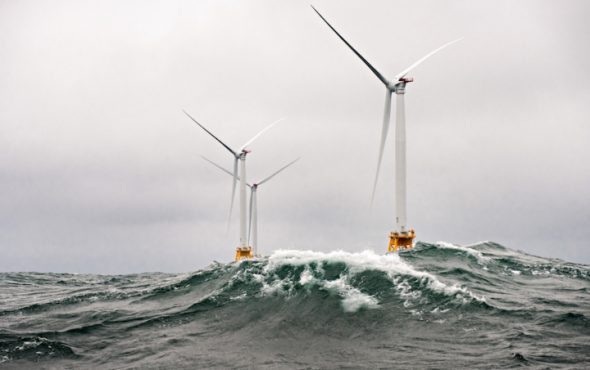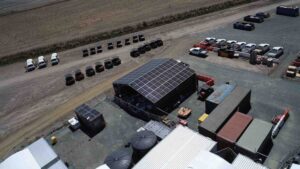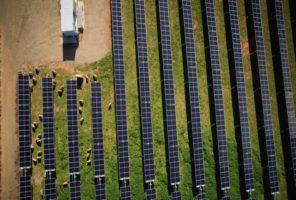A Connecticut-based solar developer has sued the United States’ Department of the Interior in an effort to halt the development of the 800MW Vineyard Wind offshore wind farm off the coast of Martha’s Vineyard.
Even more unfortunately, secondary reporting has revealed the main cause for the lawsuit is designed to protect one man’s view from his multi million-dollar property. To make matters worse, that man is the owner of the solar development company.
The suit claims that approval of the Vineyard Wind Project violates several laws already on the book, including the National Environmental Policy Act, the Outer Continental Shelf Lands Act, the Clean Water Act, and the Marine Mammal Protection Act.
In the introduction to the complaint, the plaintiffs resort immediately to a level of hyperbole which does not drop off in either the language used, or the accusations levelled against the wind farm.
According to the lawsuit, “the Vineyard Wind project confirmed what the fishing industry has been saying for years—that off-shore wind will eventually kill their industry and the livelihoods of generations of New England fisherman and women.”
The primary accusation to be levelled against the wind farm, however, is the supposed risk caused by a Category 4 or 5 hurricane landing along the east coast of America, which the plaintiff declares would damage all potential turbines and cause “an oil spill greater than that of the Exxon Valdez, which was 10 million gallons of oil.”
The plaintiff further claims that “No offshore wind turbine that exists today can survive a Category 3 or greater Atlantic hurricane” – a fact which is patently and demonstrably untrue.
It further describes the chosen 13MW Haliade-X wind turbines as “untested and unbuilt” and as “experimental” – all of which, again, is demonstrably untrue.
Even a cursory web search would have revealed that GE Renewable Energy, the Haliade-X manufacturer, had erected a working version of the turbine back in late-2020 which has been undergoing testing ever since.
Moreover, in the last 18 months alone, GE rivals Siemens Gamesa and Vestas have all launched similarly sized or larger turbines, erected prototypes, and begun testing.
And, as Gizmodo’s Molly Taft reported on Monday, wind industry standards require that turbines be able to withstand once-in-500-year hurricane conditions.
Quoting Sanjay Arwade, a professor of civil engineering and associate director of the Wind Energy Center at the University of Massachusetts, Amherst, these “standards that were ‘explicitly intended to account for hurricane exposure of US offshore wind.’”
The Biden Administration officially approved the Vineyard Wind offshore wind farm back in May – but not before the project’s developers, Avangrid Renewables and Copenhagen Infrastructure Partners, completed an exhaustive and unprecedented public review process that, according to the developers, generated more than 30,000 public comments – 90% of which support the project.
Construction and operation of the project was reviewed by more than two dozen US federal, state, and local agencies over the course of over three years, and the turbine layout was endorsed by the United States Coast Guard for transit, fishing and navigational safety.
Gizmodo’s Taft spoke to Allco Energry’s owner, Thomas Melone, who is also one of the three plaintiffs alongside Allco Renewable Energy and Allco Finance.
Melon’s response: “Ending the livelihoods and way of life of generations of fishermen and women, and quickening the extinction of marine species is the wrong and unnecessary path” towards decarbonisation.”
Taft’s report reveals what the author describes as “a clue to what might be going on in this case.”
It is not the first time that Melone has sought to prevent the development of an offshore wind farm, having “filed a complaint against the Cape Wind offshore project in the early 2010s”.
Moreover, in one appeal, the filed complaint claims that the proposed wind farm would have a “well-documented and specific and substantial alteration of the direct viewscape from Melone’s property” – in Nantucket Sound – and that he was worried about the value of his property decreasing.
In short, notes Taft, this most recent lawsuit against Vineyard Wind seems to be yet another example of NIMBYism – an acronym short for Not In My Back Yard.










